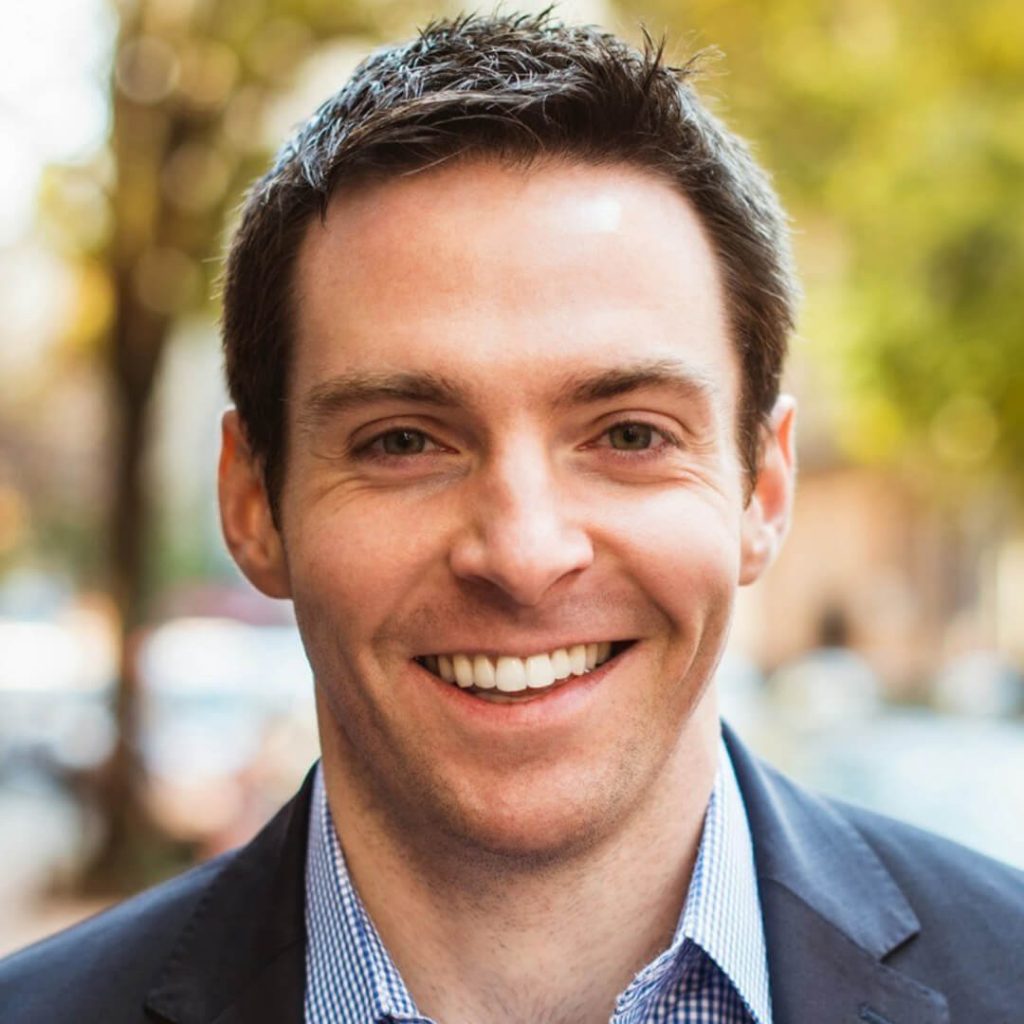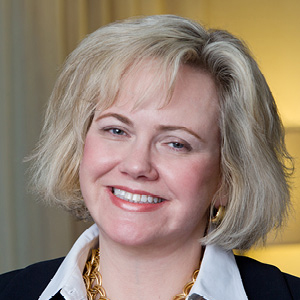A Conversation about Financial Ethics with Leah Binder, President & CEO of The Leapfrog Group

The following is a transcript of a live conversation between Leah Binder, President and CEO of The Leapfrog Group, with Chris Moriates, MD, Executive Director of Costs of Care and Jordan Harmon, MHA, Director of Costs of Care. The transcript has been edited for length and clarity.

Christopher Moriates 
Jordan Harmon 
Leah Binder
Chris Moriates:
We’re excited to have you with us, Leah, to dig in a little bit about the work Leapfrog has been leading in developing a financial ethics scorecard and to talk more about patient affordability. The Leapfrog Group just celebrated its 20th anniversary, can you give everybody a brief overview of The Leapfrog Group and the work that’s been done over the last 20 years.
Leah Binder:
The Leapfrog Group is a nonprofit founded 20 years ago by a group of employers and executives at large companies like Boeing and GM, etc. They were concerned about a report that came out from the Institute of Medicine “To Err is Human” that got a lot of attention. “To Err is Human” suggested that upwards of 100,000 people were dying every year from preventable errors in hospitals and the employers and executives felt that it was time to improve the safety and quality of care in hospitals. After all their efforts over the years – trying to control health costs and improve benefits– to all of a sudden hear about all of these errors and accidents that they really never knew about, motivated them. They wanted change, and transparency about how healthcare can be safely delivered to their employees. Really so that their employees could make informed decisions about the safety and quality of their healthcare. They said, “Why can’t our employees shop for hospitals the way they do for any other good or service? Why not let hospitals compete for customers based on their quality and safety?”. A really fundamental, simple idea that they’d seen at work in their own industries.
That really is the fundamental principle of Leapfrog today – we do surveys of hospitals and ambulatory surgery centers (ASC) to get information about quality and safety, and we publicly report by facility. We use some of that survey information and other data to issue letter grades (A, B, C, D, or F) to general hospitals on how safe they are. We also report other survey data from hospitals and ASCs separately on our website (www.leapfroggroup.org). Employers and others, like health plans, use our data to productively structure benefits plans that encourage use of safe and high-quality places. Also, we’re part of the movement toward health care value and we certainly want to improve the affordability of care as well, so on behalf of employers across the country, we’re driving for improvement in the overall delivery of health care in our country.
Chris:
You and I recently collaborated with another of my colleagues from Costs of Care, Dr. Reshma Gupta, to put together a Viewpoint article for JAMA about rebuilding trust in medical centers and their role in affordability. The piece was really making the case that we need to focus on patient affordability and we laid out a number of steps that medical centers can take. We recognized, of course, affordability depends on payers and on so many players within the larger healthcare industry, which makes it easy to point the finger at someone else, but there is a role that each of us can play and we can focus on the role of medical centers. I know Leapfrog is becoming more involved in leading that area, thinking about medical centers and their “financial ethics.” I’m curious how you decided to do that after 20 years of helping lead the patient safety and quality movement – taking on costs, as you know, can be challenging and even a dangerous place to enter.
Leah:
Well, we’re not going to completely focus on costs, we’ll leave that to Costs of Care. You can take on the full spectrum of issues around costs, but we certainly feel we have a role to play– and our role is always quality and safety. Problems in pricing and costs in health care are quality issues. One of the biggest issues I think for health systems to grapple with is that they lose trust from their patients and from the families of the patients when the cost of care is not transparent. Lack of trust impedes quality outcomes. So fundamentally we needed to get involved in this conversation.
Jordan Harmon:
I was taking a look at the Leapfrog survey and some of the proposed changes for hospitals in the upcoming year, and I think Leapfrog has done an amazing job of putting together your new billing practice questions. Particularly, price transparency questions, and really making sure that people understand costs ahead of time. Other organizations have been a little reluctant to take this on – can you talk about these new billing practice questions and how you are working with hospitals, health systems, and providers to build capabilities, or at least identify and address these issues and push for transparency?
Leah:
We work with both hospitals and ASCs and set standards for safety and quality performance. Then we measure the extent to which facilities meet those standards with tested and vetted measures, often aligned with other organizations like the Joint Commission or Centers for Medicare and Medicaid Services. We also focus heavily on measurement science to understand the best and fairest ways of calculating the performance of different health systems. We work very closely with hospitals and ASCs to help them understand how they compare with others and the room for improvement in their performance.
For the 2021 Surveys, for the first time we are addressing issues of financial ethics because they are quality issues. Since this is the first year we are asking about billing ethics on the hospital and ASC surveys, as per our policy we will not score or publicly report the results by facility this year. We use this first year as factfinding, to learn about the range of performance out there, and to ultimately set evidence-based standards for excellence. Then in 2022 we will finalize the standards and report results by facility.
We believe that it is a fundamental ethic that a patient is entitled to know how much money they’re going to be paying for the services they’re about to get before they get those services (with exception of life-threatening emergency care). For any elective procedure of any sort, you are entitled to know what it’s going to cost and in addition you’re entitled to know if you’re getting care from someone out of network. Along with employers, we’re very worried about the surprise billing problem. It may have been addressed to some extent by legislation passed in Congress, which we’re delighted to help advocate for, but it’s not in place yet and so we need hospitals to take responsibility for their patients and assure they are not coming to an in-network facility and getting a surprise out-of-network bill.. That’s just not ethical. And it can amount to high levels of stress for patients– and stress is not healthy. As I said earlier, it also erodes trust, and trust is critical to achieving the right outcomes.
One other aspect of ethical billing practices is that their bills should be readable. That’s all just basic, fundamental respect for the patient, which is the ultimate quality issue. We ask about that on the 2021 Surveys as well.
Jordan:
Exactly, and that’s a challenge on its own – anybody who’s gotten the hospital bill, then the physician bill, and then the imaging bill. I mean it’s difficult to read it all and understand it, so I agree with you there and Chris, one of the things we continue to talk through at Costs of Care is how affordability issues impact quality and outcomes. We believe very much that it does, so we’re really happy that Leapfrog is taking a hard look at it.
Leah:
It’s very complex and I’ve personally gotten hospital bills from a hospital I actually worked for at the time and I didn’t understand them! They just used this language that people can’t understand. Sometimes it’s deliberate, to keep patients from asking too many questions. Other times it’s simply the way hospitals always did it before and there hasn’t been a focus on doing better. Hospitals may write the bills to comply with government regulators or health plans, not to be understandable to patients. The patient should always come first. The patients should be the center, so the bill should be readable to them. At a fundamental level the bill can tell us where the patient’s needs rank in that hospital system and convey that message in a really powerful and painful way that I don’t think health systems are even aware of. It’s important to us from the perspective of quality and safety, that hospitals demonstrate to their patients that the patient matters. Billing practices and financial ethics are a critical way of doing that.
Chris:
That’s so true. As you mentioned, and as we’ve been pointing out at Costs of Care, the connection between quality and safety is really important.
We also need to focus on the intersection between trust, Choosing Wisely and avoiding overuse, and affordability – when patients are at their most vulnerable seeking care, they need to trust the care they’re receiving is both necessary and reasonably affordable. If they get a last-minute surprise bill in the mail or they get something other than what they’re told, it immediately erodes trust and once we don’t have trust in healthcare it’s really hard to make people healthier.
Leah:
Healthcare systems need patients to entrust their lives to them. That is a sacred trust and so it is not a small thing for a patient to get a frightening and debilitating health care bill. Anyone who’s been under financial stress in their life knows that stress can be excruciating, and more so for people who have trouble even feeding their families to begin with. That’s why we address in our survey whether or not the hospital compounds that pressure by taking patients to court to get their bills paid. Marty Makary wrote the book “The Price We Pay” to expose how a number of hospitals were taking patients–many of whom were minimum wage workers–into court to force them to pay these bills with wage garnishing and other tactics. The patients were never told in advance of getting the services what to expect from the bill. Again, this exposes a lack of ethics toward the patient which we think is profoundly harmful.
Jordan:
A couple of years ago Costs of Care, with Patrick Conway, outlined an Affordability Framework in the New England Journal of Medicine Catalyst to improve affordability. One of the aspects of the framework is out-of-pocket costs and transparency. Another area is training clinicians, and sometimes we’ve overlooked that this work is tough and challenging if clinicians don’t have the right training. Then there’s financial pathways that really need to be aligned with clinical pathways. And finally, moving patients to higher-quality, lower cost sites of care. We’re making good progress on the framework and Leapfrog is leading the shift to really push some of the responsibility to health systems.
Leah:
Absolutely, I think that health systems need to recognize their role as leaders for people’s healthcare. Patients need to be able to see health systems as leaders, as arbiters, as champions for their health. There’s real opportunity for health systems to be those champions, but that’s going to take some change in business as usual. The first change is to put the patient first, and I think the patient’s health, including the cost burden, is something the health system should own.
Jordan:
That’s a really great point, and some of that we’ve argued advances the competitive edge of the whole system. If the health system can take some level of the burden off of the patient, make the entire process easier and more transparent, they’re actually going to be much more in demand from a patient experience standpoint. So, I would totally agree with what you’re saying, it makes complete sense.
Chris:
When it comes to Leapfrog, what’s also exciting to me is that you do a great job at laying out what’s possible and what should be. You highlight the positive outliers and support those hospitals and health systems that are doing things well. That’s really important and something that frankly, once again, we’ve worked together on each year with The Steven Schroeder Award for Outstanding Healthcare CEO. The Steven Schroeder Award is to show that it’s hard to run a hospital, as you tactfully pointed out earlier on in our conversation, but CEOs are all under similar constraints and yet there are those who are figuring out ways to lead and to actually try to address affordability. Leapfrog’s Financial Ethics Scorecard is another way of doing this, which is to say, here’s the expectation and look there are positive examples and you can be like the hospital down the street that’s doing it already. I think that’s really powerful.
Leah:
What I see from CEOs of the most successful hospitals is a willingness to take the risk to do the right thing. They see a true north and make sure they head in the direction that’s right for the patient. They take the risks even if it involves sacrificing some revenue in the short term. The patients come first. One of the problems with our reimbursement system and fee for service is that it’s damaging to patients and to health systems. I say damaging to health systems because it says: no matter how good of a job you do, we’re going to pay the same; no matter what outcome you achieve for your patients, we’re going to pay the same; no matter how well you achieve the mission of your organization and your life’s work, we’re going to pay the same; no matter how good a job you do getting there, we’re going to pay the same. That’s extraordinarily demoralizing for people who devote their life’s work to health care, brilliant, competitive people who got there because they are so talented. Our payment system says your excellence is irrelevant.
Chris:
I think some of this is in the early stages of where we may be in 5 to 10 years on affordability, and I do think we’re in a much better place today in recognizing the many problems related to affordability than we were 10 years ago. I appreciate the way Leapfrog is looking to really bring it out into the open, to provide a financial ethics scorecard for people to start to evaluate places that do this well and continue to hold those places accountable. I would love to hear your thoughts and plans of additional research and input from other experts in the field so that the robustness of the questions, not just related to transparency, but to making it broader so that patients can truly benefit. Is that sort of the plan and the direction Leapfrog is heading with this over the next 5 years?
Leah:
I think it’s hard for me to tell you exactly where this will go next because it is new for us. I will say, personally, I see this tying in as value-based payment evolves in the next 5 years. The standards and expectations for how health systems structure their payment policies around achievement of quality and how they communicate that to patients will change how financial systems and health systems work. We need to make sure that happens in a way that’s beneficial to the patient.
Jordan:
That’s great to hear and I think it’s needed. I’d be remiss if I didn’t ask the question about equity, which plays very much into trust in the health system and/or hospital. There may be those traditional questions that we can all think of, but there are also questions around financial equity in addressing the population as well, and so almost a question of how do you tie that in to get hospital leaders and health systems to think about more fully addressing a patient’s ability to pay and transparency, but from an equity lens?
Leah:
We’ve added questions about equity to our 2021 surveys for hospitals and ASCs. Obviously, we lived through 2020 along with everyone else and our eyes have been opened in a new way to the problems in our country when it comes to equity and inclusion. The first question we had was “where are the disparities in the delivery of care by race, ethnicity, and language?” and “how do hospitals and ASCs address them?” The answers, at least from what we could tell last year when we were doing our research, is most hospital systems are not tracking these issues. It was actually a shock to us, something we thought everybody tracked. Just like with the new billing ethics questions, this first year the health equity questions will not be scored or publicly reported. We are learning alongside our colleagues. We ask them to give us the information, and we welcome any hospitals or ASCs to give us a copy of policies they have. Ultimately, we want to look at the range of approaches so that we can be part of the solution and set standards for safe, quality, affordable, and equitable care.
Chris:
We’re so thankful for you asking the questions. You’ve got a long track record showing the power of starting to ask those questions, shining a light on the results, and helping to drive change. You’ve really highlighted why costs, affordability, and equity are part of the quality and safety movement and need to be looked at.
Leah Binder:
Well thank you and thank you for your great work on the same mission. I think many positive changes are coming, and I’m excited to work with you to get there.
About The Leapfrog Group
Founded in 2000 by large employers and other purchasers, The Leapfrog Group is a national nonprofit organization driving a movement for giant leaps forward in the quality and safety of American health care. The flagship Leapfrog Hospital Survey and new Leapfrog Ambulatory Surgery Center (ASC) Survey collect and transparently report hospital and ASC performance, empowering purchasers to find the highest-value care and giving consumers the lifesaving information they need to make informed decisions. The Leapfrog Hospital Safety Grade, Leapfrog’s other main initiative, assigns letter grades to hospitals based on their record of patient safety, helping consumers protect themselves and their families from errors, injuries, accidents, and infections.
